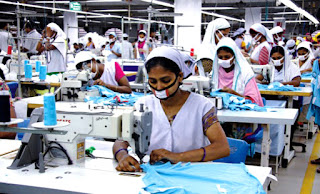A senior official of the DIFE told Ittefaq that there was no expected speed of reforming more than one and a half thousand factory factories outside the Accord and Alliance. But in the coming year we will have to complete the activities. If there is an accident in these factories, it will have negative impact on other good factories in the country. It can not be. For this, now we have to give our highest priority to reform these factories. DIFE will take legal action if it is not reformed at the right time.
After the collapse of Rana Plaza in 2013, the Accord and the Alliance, two coalition partners, were formed in order to maintain safety and security of Bangladesh's garment factories in Europe and America. They are looking after the reforms of the garment suppliers of these two groups. The number of such factories is about 22 hundred. Besides, the government took initiative to oversee the reform of more than one and a half thousand factories engaged in exports. It comes forward in the ILO (International Labor Organization). The company has collected some money from more than one country to comply with financial costs for initial audit. But due to the large amount of money spent in the reform, many factory owners are back in the reform. Most of the entrepreneurs of these factories are relatively small capital. On the other hand, their large part is shared or rented. As a result, the owner of the building did not agree to structural or fire and electrical reforms. Funding can also be seen as a big problem. For these reasons, the motion did not come in government initiatives in factory reforms.
Already about 80 percent of the error repair was done in the Accord and Alliance factories, but some of the 1.5 million factories in government enterprises have not been reformed. As a result the discomfort started with the issue. Meanwhile, the owners of the Chittagong District Owners' Authority are less interested in reforms due to the large-scale extra expenditure and ownership complexity in the factory building. The owners of 98 garment factories in the region themselves shared this with the exchange of views with the DIFE at BGMEA office in Chittagong. However, by the DIFE, their deadline has been set to complete the reform process at any cost by April next.

EmoticonEmoticon